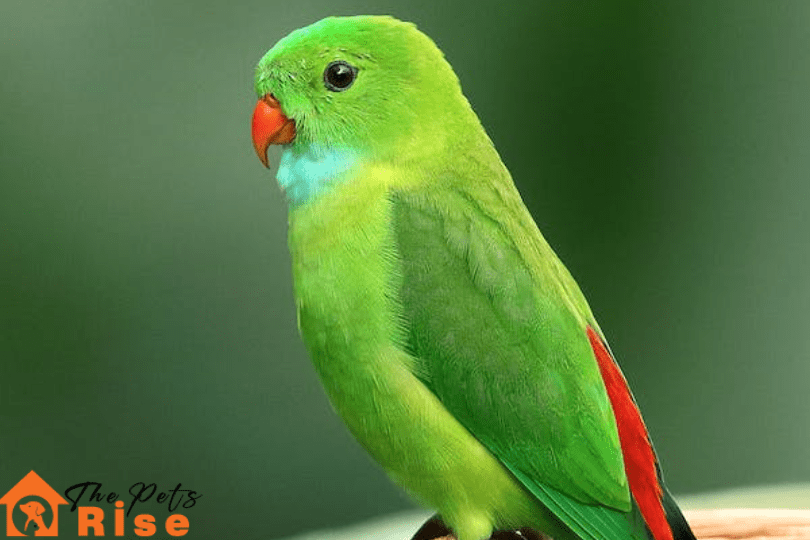Depressed bird just looks like a common bird for someone who doesn’t spend much time with their pet parrots or even exotic pet birds. We all know how pet birds can bring joy into one’s life and their constant chirping and tweeting sounds will provide a sense of being alive in any embellishment. However, these happy little fellas can also suffer from bird depression just like humans.
A Depressed Bird is Real
Anyone in this world who has feelings and a sense of thinking can suffer from this. Take parrots for instance. They are highly social creatures and can be affected by their surroundings easily. Though sometimes this problem can easily be eradicated and they will be normal again. However, there are some major problems that may occur to them that may put them under stress. This may affect their health badly along with their regular life and activities. Even if you are constantly noticing changed behavior in your birds then you are less likely to be wondering “is my bird depressed” Continue reading this article for a better idea. Especially if you are a first time pet bird owner.
Feather Plucking
You may wonder “is my bird depressed” because you have seen them plucking their feathers. Often times birds owner think about do birds get depressed in cages which doesn’t have a concrete answer for several reasons. But there is a huge probability that your pet birds may be facing this situation in the cage. Feather plucking in parrots and other birds is quite a common phenomenon.
However, you will need to make sure that there is any health issue among birds if you are observing bald patches among your parrots. If your birds have normal health then you will need to observe their activities. Sometimes birds will pluck their feather out of boredom or not have any social interaction. If this is happening then you should be spending more time with your depressed bird.
Appetite Loss
When it comes to depression in birds then there can be varying symptoms. However, often a sad bird shows a lack of appetite. If you are sure about the health of your pet bird but notice an appetite change in your bird then it could be a serious problem. If its food intake is changed for more than two days then visit the vet and discuss the problem with them for a better idea.
Destructive Behavior
Small pet birds aren’t known for having destructive behavior. But a sad bird often shows destructive behavior that might be an indication of their emotions. If you are wondering do birds have feelings then yes, they do. There could be signs of destructive behavior which means your pet bird might be under stress. If your pet parrot isnt eating correctly, creating a mess in a cage without any reason, kicking the food bowl, or tearing its toys then it could be a depressed bird.
Pet birds such as parrots are social animals and they love the attention of others. Most species fly together from small to medium-sized flocks in the wild. They bond, forage, and communicate together there. So, this behavior could be a major sign of depression.
Stress Bars
There will be some long vertical lines that grow horizontally across the feather shafts of stressed parrots. They are one of the most obvious indicators of a depressed bird. However, they are usually thin, it is challenging to see them from a distance. But if you look closely at a stressed parrot, you’ll probably see a number of stress bars running over its feathers.
Decrease in Vocal Activity
Birds love to sing and fly around. Even in their captivity, they love to do this. Just when you will enter the door, they will start to chirp loudly hoping to get attention from you. This singing and happiness is the sign of happiness in birds. If you find that your pet bird isnt doing this like it used to then it could be a sign of bird depression.
You can encourage this behavior in your bird by spending time with it. Talk to them and give them homemade snacks for their behavior. This usually happens when it feels lonely. If your bird is grown lonely then this desire is more likely and you will often find it staring off into space or its surrounding.
Angry Birds (Aggression)
While the game of angry birds is something we all enjoyed, the anger from your pet bird will not work in the same way. One of the major birds emotions is anger which they often display when they are depressed or feeling stressed. At this point, these emotions are manifested in anger. This is also associated with hormonal changes as well which often get resolved over time.
If this emotion is prolonged then this means that your bird is very unhappy. If there isnt any health issue then you should take a look at your bird’s life and see what is causing this behavior in it.
Do Birds Have Feelings
If you wonder do birds have feelings then the simple answer would be “YES” they do have. However, if you often think that do birds cry then yes but not like other animals. Birds or in fact any social animal just like humans have feelings and birds emotions can be seen in various possible ways. They can get under stress and may show signs of depression as well. If there are not any visible or internal health issues in your bird then it could be a depressed bird trying to tell you something. This is why it is important to spend time with them and give them the attention they are craving. This could be the best way to deal with a depressed bird. However, consider visiting your vet as well for a better idea.
Conclusion
Birds can be depressed as well. Too bad that most pet bird owners will overlook the signs and symptoms of bird depression. Make sure to observe their behavior to understand them better. Follow our blog for more birds and other pet care tips.







